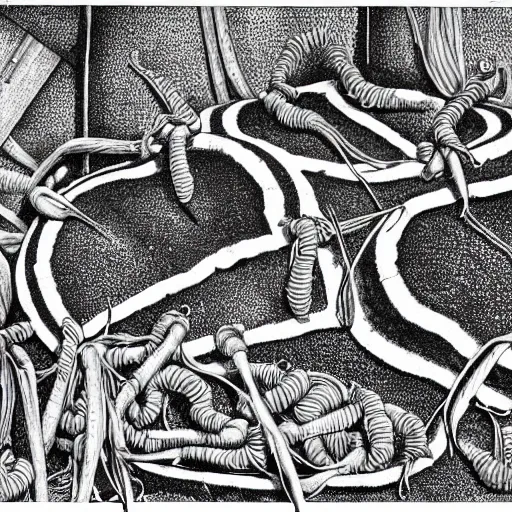
Predatory nematodes are tiny, worm-like organisms that feed on other soil-dwelling creatures such as insects and mites. These microscopic predators have been gaining popularity in the agricultural industry as a natural and effective way to control pests without the use of harmful pesticides.
The agricultural use of predatory nematodes involves introducing them into the soil to target specific pests that cause damage to crops. There are different species of predatory nematodes that are effective against different pests, and their effectiveness depends on factors such as temperature, moisture, and soil type.
One of the most commonly used species of predatory nematodes is Steinernema feltiae. These nematodes are effective against a wide range of soil-dwelling pests such as fungus gnats, root aphids, and thrips. They work by infecting the host pest with a bacteria that kills it, and then feeding on the decomposing pest.
Another species of predatory nematode used in agriculture is Heterorhabditis bacteriophora. These nematodes are effective against a variety of soil-dwelling pests including grubs, weevils, and other beetle larvae. Heterorhabditis bacteriophora nematodes have a unique behavior where they release bacteria that kill the host pest before feeding on it.
Predatory nematodes are typically applied to the soil as a liquid solution or powder that is mixed with water. The nematodes can be applied directly to the soil or injected into the soil around the base of the plants. Once introduced to the soil, the nematodes will seek out their target pests and begin their hunt.
One of the benefits of using predatory nematodes is that they are completely natural and do not harm beneficial insects, plants, or the environment. They also do not leave any harmful residues on crops, making them a safe alternative to traditional pesticides.
Another advantage of using predatory nematodes is that they are highly effective at controlling pests. They are able to target pests that are difficult to control with other methods, such as those that live deep in the soil. Predatory nematodes are also able to attack pests in their early stages of development, before they cause significant damage to crops.
Overall, the use of predatory nematodes is a promising alternative to traditional pesticides for pest control. They offer a natural and effective solution for farmers and growers, while also promoting sustainable agriculture practices such as no-till gardening and farming. As more research is conducted on the effectiveness of different species of predatory nematodes, we can expect to see them play an increasingly important role in pest management strategies for agriculture.
You can purchase predatory nematodes from naturescontrol.com Use coupon code Drew10 and save 10% on your order.

